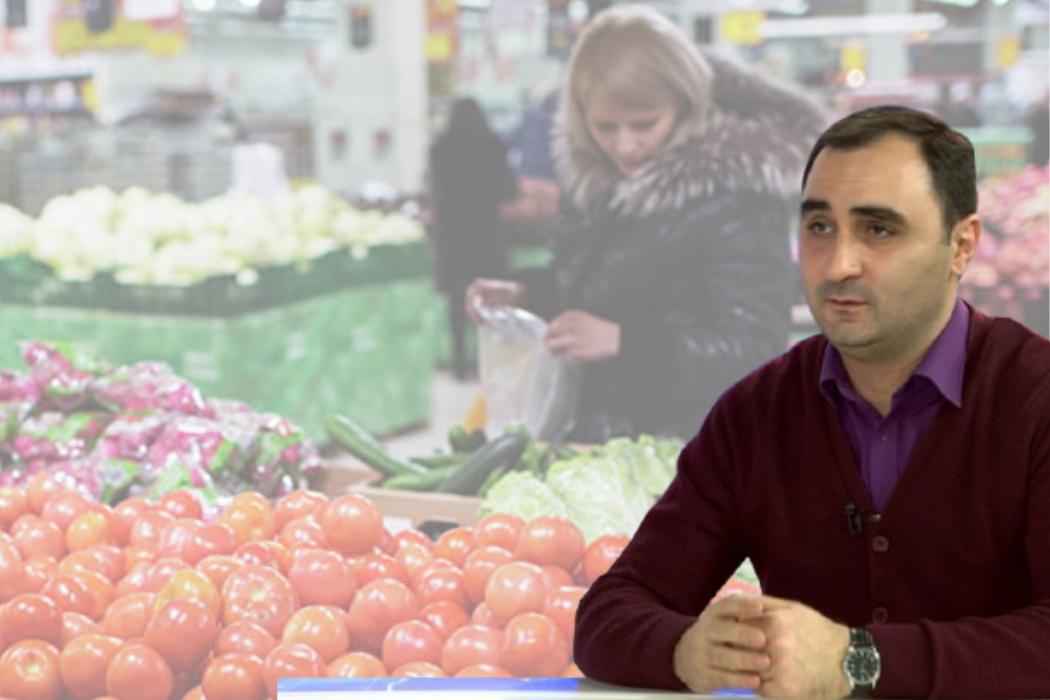Radar Armenia's interlocutor is Babken Pipoyan, President of the "Informed and Protected Consumer" NGO.
- In July, the annual inflation rate in the Armenian consumer market was 3.4%, which falls within the target range of the Central Bank. At the same time, the prices of some seasonal products, for example, vegetables and fruits, have experienced significant fluctuations. How do you assess this contrast? What factors primarily affect these fluctuations?
- It is wrong to give a global assessment, because a separate analysis should be made for each product. There were days when apricot exports were problematic. During those days, the price of apricots in the market dropped sharply compared to the previous year, then, after a few days, it recovered again, and at some point it was even higher than in the same period last year. By averaging these two figures, we can determine a percentage increase compared to the previous year. We will explain this further. In addition, there are no mechanisms for regulating the prices of agricultural products. Specifically, when a farmer suffers, the state is not on his side. Conversely, when a farmer can have profits, he turns to the state. When I had a problem, I was alone; no one asked why I was selling at a price lower than the cost price. Now, when I sell a little more, you come and ask why the product is more expensive than last year.
Due to the lack of an agrarian policy, proper management of agriculture is not planned. If the harvest is low one year, the product's price increases, or it's sold at the same price the following year, they claim it was a reasonable price last year. That same product is more in demand, it starts to exceed demand, and naturally, it falls. Therefore, it is incorrect to formulate globally for all products; instead, each product should be considered separately.
-According to the latest data, butter prices have increased by 12.6%, vegetable prices have decreased by 21.7%, and egg prices have declined by 8.3%. What message does this send about the stability of the consumer market?
-Butter is subject to specific price changes in the international market, but another issue is that fluctuations in our country are not always synchronous with global market prices. More precisely, they are synchronous in one case, when there is inflation, and then it is restrained; in our country, restraints work with much slower mechanisms. Here, the Competition Protection Commission has a little more to do. As for vegetables and the rest, it is already an agrarian policy, because in reality, we are not conducting a proper agricultural policy. And without it, it is impossible to ensure the desired results in the sector. Shameful abuses are already active in the grain and meat sectors. It would be more desirable to have hard estimates, as there is a hypothesis that eggs were once sold at a price lower than their cost in our country. There is another problem: the production surplus, which lacks a processing plant. In other words, more eggs are not consumed, and either have to be thrown away or sold cheaply.
-Can possible Russian-Ukrainian settlements, US trade policy, and fluctuations in energy prices affect inflation, and what are the main risks that can take inflation out of the CB's target range?
-You ask such a complicated question. Naturally, the Russian-Ukrainian war or US involvement in this or that issue cannot have a certain impact. But what is the problem? Topics subject to geological planning. We need to proceed with a strategic plan: if outcome A occurs, take this action, and if outcome B occurs, take that action. Now, when we talk about the Russian-Ukrainian war, there were predictions that it would last 6 months, a year, or more. Can you imagine planning the economy with such a wrong prediction? In other words, you need to prepare in such a way that you have an appropriate solution for each scenario.
Lilit Abrahamyan


















